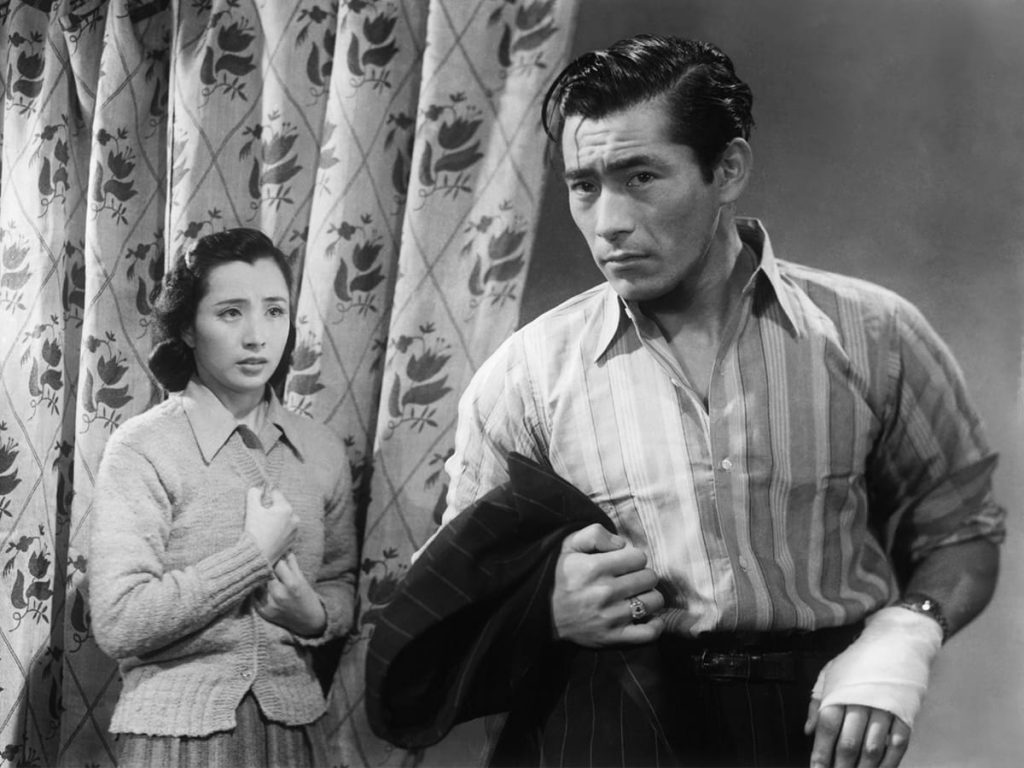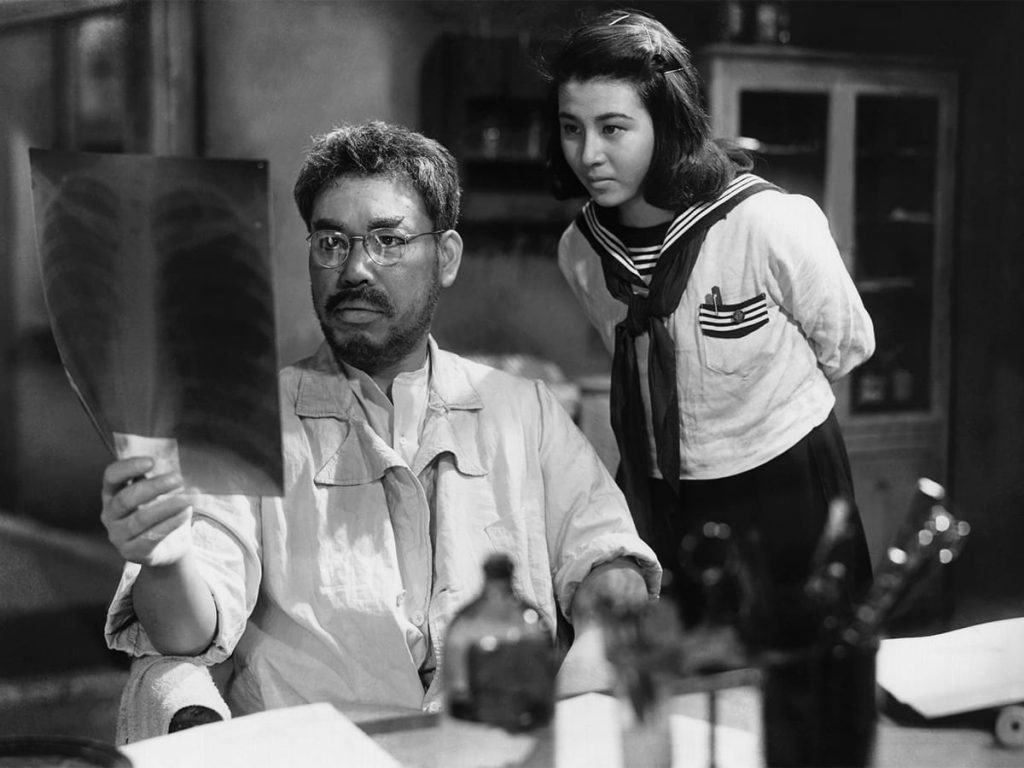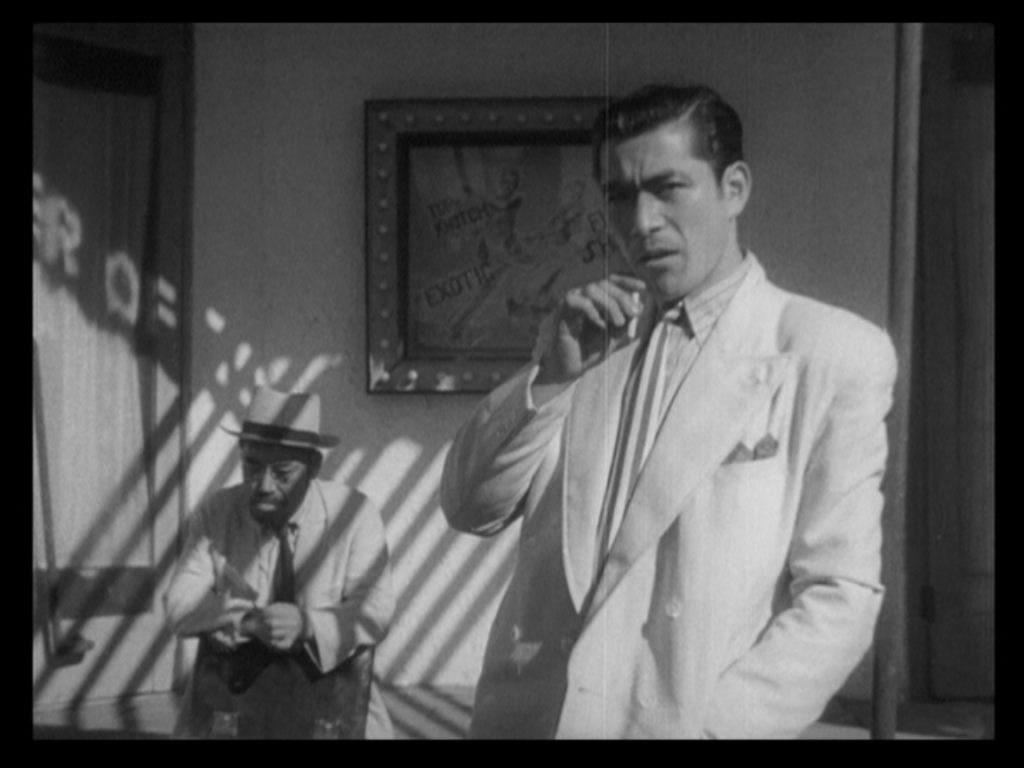Film Review: Drunken Angel (1948)



Akira Kurosawa’s 1948 Noir/Yakuza drama, Drunken Angel, is remembered by many as the director’s first collaboration with actor Toshiro Mifune (they would make 16 films together), but it was already the 5th for Kurosawa and his other go-to actor, Takashi Shimura. The pair would work together on 21 out of Kurosawa’s 30 films. The collaborations between these three men would go on to produce some of the most highly regarded films of all time. But, it was here in 1948 that they all came together for the first time.

Considered the film in which Kurosawa really came into his own, Drunken Angel, is a beautifully shot and strategically paced treasure of cinema. On its surface, it’s easy to simply check the film noir box, but there’s also a heavy dose of Italian Neo-Realism. Symbolism abounds, so you’ll need to pay attention, but don’t let that frighten you. It’s a parable with a deceptively complex plot and depth of story. It’s a moral tale of appearances, motives, survival, and redemption. There’s quite a bit happening in this little movie.

Sanada (Shimura) is a down on his luck doctor with a drinking problem in the slums of post-war Japan. Just outside his window sits a stinking mud pit full of mosquitoes and disease. He loudly admonishes others for their health habits while doing his best to find alcohol in ration-heavy neighborhoods. One night, a young Yakuza named Matsunaga (Mifune) shows up at his practice with a bullet in his hand. The doctor removes the bullet—with a bedside manner that could use some work—and proceeds to summarily judge the young man for his chosen line of work. To top it off, the doc suspects the gangster is in the early stages of tuberculosis.

The doctor, sure that there is some good left in this career criminal, repeatedly attempts to save his life. The relationship between the two takes on a father/son element, with the younger refusing to heed the elder’s warnings. Not content with sitting back while a patient dies, Sanada repeatedly confronts Matsunaga, usually ending in some sort of shoving match, with plenty of things being thrown about. To complicate things further, former boss, Okada (Reisaburo Yamamoto), returns from a stint in jail, looking to regain his territory. In the end, this provides Matsunaga the opportunity for the redemption he may not have been aware he was after all along. In a wonderfully crafted scene, Matsunaga and Okada have it out, after which, life goes on for the doctor and the rest of the slum.

If you’re not paying attention, Drunken Angel is a straight-forward, simple film. The subtext and symbolism, however, run deep. Nearly, at times, Avant-Garde deep. As the film progresses, and Matsunaga becomes sicker, his appearance becomes more pronounced. In fact, in the climactic battle mentioned above, I got the distinct sense that Okada thought he was battling a ghost. I won’t give all the cool little symbolic moments away, but I’m asking you to consider their meaning. The bog, the white paint, the dream, the music, et ectara—what does it all mean to you?

Drunken Angel was a turning point for Kurosawa. The performances he got from his two leads are nothing short of astounding. No joke, Mifune and Shimura are among the best to have ever practiced the craft. Stylistically, Kurosawa wore his American, and other international influences on his sleeve for the first time, while still making a very Japanese film. It critiques Japanese attitudes towards crime, American post-war occupation (without showing a single G.I.), honor, duty, and justice. These would become staples of Kurosawa’s later, more well-known works, but I’ll be damned if he didn’t nail them here too.
Japan • 1948 • 98 minutes • Black & White • 1.33:1 • Japanese • Spine #413
Criterion Special Features Include
- New, restored high-definition digital transfer
- Audio commentary featuring Japanese-film scholar Donald Richie
- A 30-minute documentary on the making of Drunken Angel, created as part of the Toho Masterworks series Akira Kurosawa: It Is Wonderful to Create
- Kurosawa and the Censors, a new, 25-minute video piece that looks at the challenges Kurosawa faced in making Drunken Angel
- New and improved English subtitle translation
- PLUS: An essay by cultural historian Ian Buruma and excerpts from Kurosawa’s Something Like an Autobiography
